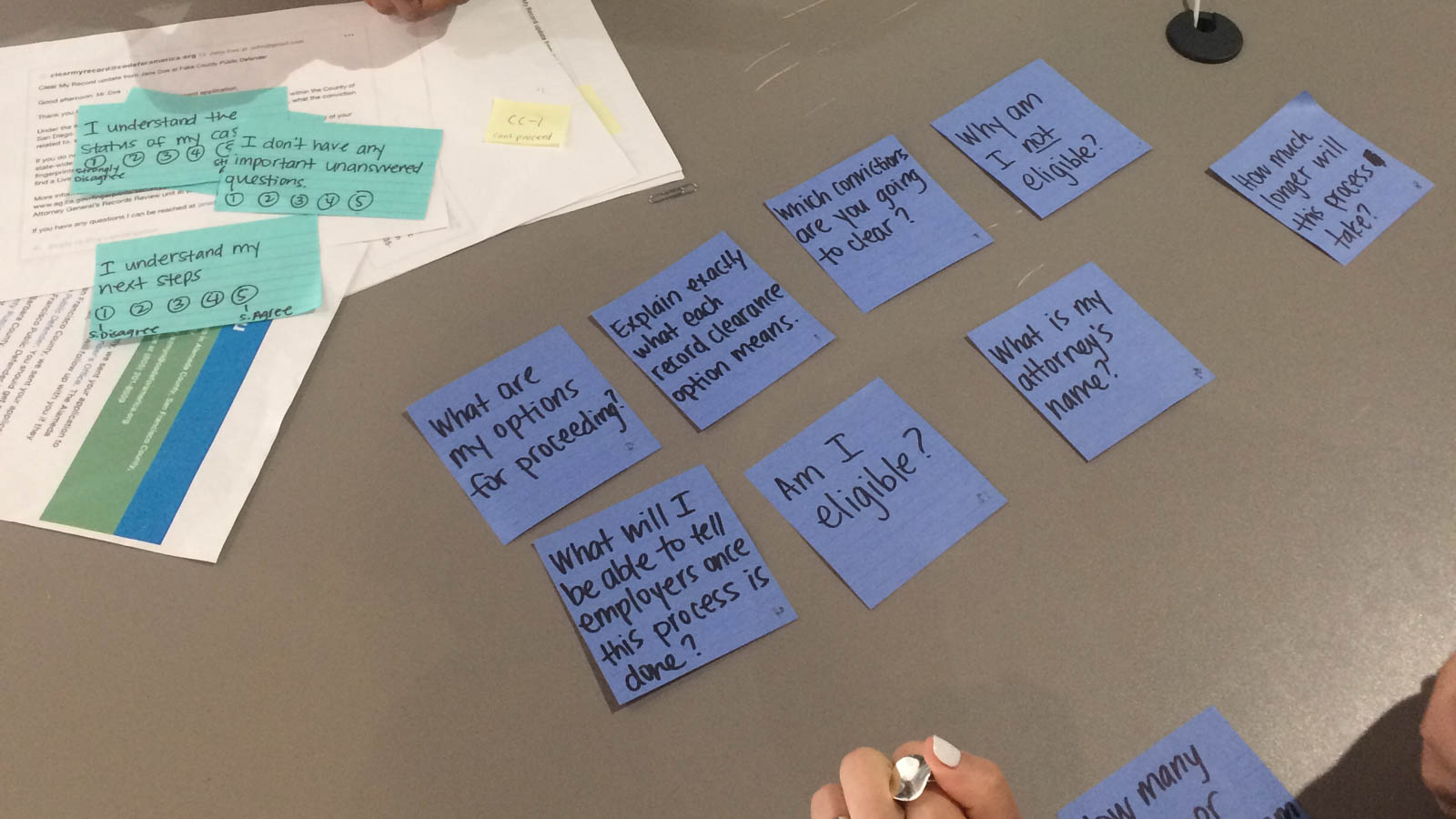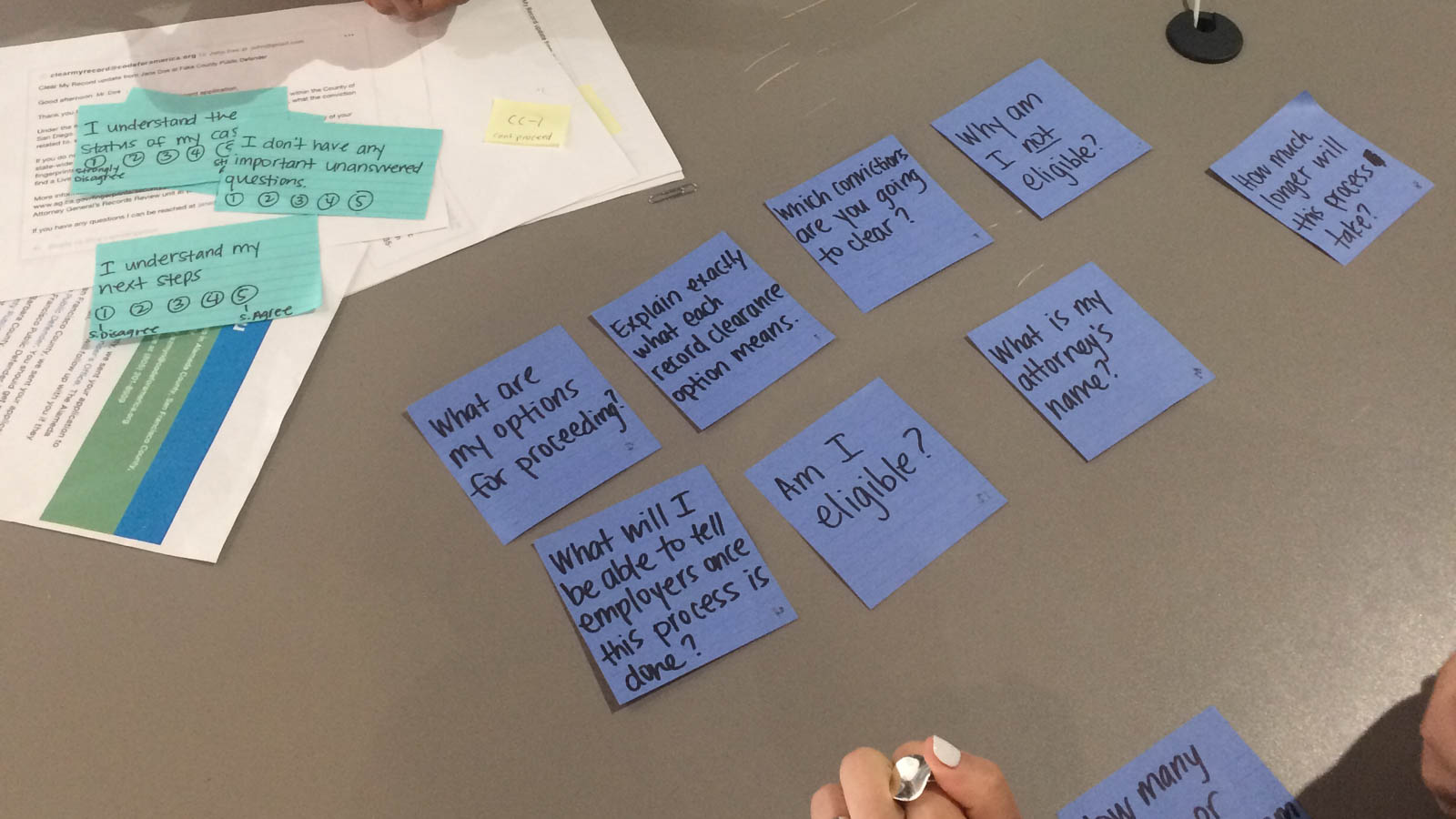
When San Francisco District Attorney George Gascon announced in February 2019 that more than 9,000 marijuana-related convictions would be cleared, the city became the first in the United States to expunge all eligible records after cannabis legalization.
For Code for America, a non-profit, non-partisan group of techies who provided the know-how and algorithms to make it happen, San Francisco is just the tip of the iceberg.
“The momentum of Prop. 64, which legalized the adult use of marijuana, made it possible for certain convictions around marijuana to be eligible to be cleared,” said Alia Toran-Burrell, the Senior Program Manager of Clear My Record, one of the criminal justice programs at Code for America.
Alia Toran-Burrell is the Senior Program Manager of Clear My Record, a criminal justice program of Code for America. (Photo courtesy of Code for America)
“At the beginning of last year, the San Francisco district attorney announced that he and his office were going to start proactively start clearing marijuana convictions that were eligible. And so we tapped into that momentum and said, ‘We can actually help you to automatically do it using technology,’ ” Toran-Burrell told Weedmaps News.
Code for America was founded in 2011 by Jennifer Pahlka, a former White House Office of Science and Technology Deputy Technology Officer. Pahlka’s 2012 TED Talk explained that technology can be applied to enhance and restructure many government functions through simple coding algorithms. Pahlka left her government career to start Code For America, which she has called “a Peace Corps for geeks.”
Jennifer Pahlka founded Code for America after serving as the Deputy Technology Officer in the White House’s Office of Science and Technology. (Photo courtesy of Code for America)
With nearly 60 full-time staff members, many of them data scientists, data researchers, and software engineers, Code For America leverages considerable technical skills and resources. Using their home base of San Francisco as a test case, these coders for a cause launched their pilot program there to help jurisdictions streamline and automate the expungement process for cannabis convictions.
“Code for America’s goal is for government to work better,” Toran-Burrell said, explaining that social justice underpins the work that the organization does. “The criminal justice system is one of the areas where the government is failing people the most.”
The decades-long war on drugs disproportionately targeted people of color and low-income communities. As a result, millions of U.S. residents have been hampered by a criminal record for possession, sale or other cannabis-related offenses that often become a barrier to employment, loans, housing, and other forms of upward social mobility.
“We see this a part of a broader effort to change the ways communities are treated,” Toran-Burrell told WeedMaps News.
Now actively working with five California counties, including Los Angeles and San Joaquin, home to Stockton, and hoping to spread the effort across all of California by the end of 2019, Code for America is also engaged in talks with other jurisdictions around the U.S. hard hit by the war on drugs, including Cook County, Illinois, home to Chicago.
“We look forward to working with Code for America to expedite our efforts of proactive conviction relief in low-level cannabis possession cases,” the spokesperson from the office of Cook County State’s Attorney Kimberly Foxx told Weedmaps News in an email in April 2019 after Illinois announced that an adult-use act was on the legislative table.
While laws that legalize cannabis use, including California’s Proposition 64, also known as the Adult Use of Marijuana Act, usually make it clear that people convicted for many weed-related convictions are eligible for expungement or reduced charges, they often fail to provide specific guidelines, tools, or funding for implementation, leaving the process up to individual counties instead. This leaves local district attorney’s offices with a workload that can be overwhelming, according to Toran-Burrell.
Code for America, a nonprofit, nonpartisan group that works with public agencies to produce code-based solutions to public policy challenges, has partnered with prosecutor’s offices in California and Illinois to expunge marijuana-related criminal records. (Photo courtesy of Code for America)
“Instead of the DA’s office pulling records one by one, determining eligibility one by one, which takes up a huge chunk of time and resources, we use technology to completely streamline and automate the process,” she said.
Code for America’s “Clear My Record” program uses an algorithm that sifts through the often huge databases of potentially eligible people with marijuana-related convictions on their record in surprisingly fast amounts of time.
“The majority of the work is actually on the front end, building partnerships and understanding the data so that we can build the code that will read the data file,” Toran-Burrell said. “The actual technology is incredibly quick. The last county that we did had something like 200,000 lines of data that needed to be read. Without technology, it could take around an hour per case to determine eligibility, so 200,000 convictions that take an hour each is a lot of time.
“Instead of the previous process of each case having to be heard in court, the courts now can just take this bulk data and put it into their records directly. It can all be done in bulk, so we have streamlined the entire process,” she said.
Streamlining government processes does not stop at clearing records for Code For America, however. Besides focusing on criminal justice with Clear My Record and Client Comm, which improves communication between parolees and their caseworkers so that clients don’t face jail time just for missing appointments and other petty but common reasons, the organization has also developed technology-based social safety net and workplace development initiatives aimed at serving those who need government help the most.
“Whether it’s getting people access to CalFresh [California’s food assistance program] or getting people more streamlined access to jobs that pay a decent wage that they can actually live on, or getting people connected to other social services that they are eligible for, this is kind of a one-step solution instead of having to navigate a really complicated process,” Toran-Burrell said.
“Government is big and complex,” she said, “but it doesn’t have to be that way.”











